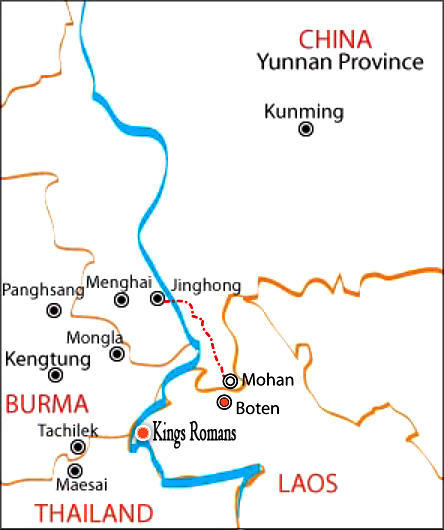More than 20 gambling houses in Shan State East’s Wan Hsieo, for more than a week, have been operating without the benefit of internet facilities, after China cut down the range of cellphones, according to sources from the Sino-Burma border.

“In Mongla, the cellphones are okay, but there are casinos here,” said a resident. “But in Wan Hsieo (16 miles south of Mongla), the cellphones are working no more.”
The result is that online gambling from the comfort of Beijing and other cities in China is no longer possible. It is part of the Middle Kingdom’s efforts to prevent its citizens, particularly state personnel, from using state funds to gamble, according to the sources. “Gambling, corruption and drugs go together,” said an official.
This is the second time the gaming operations under the control of National Democratic Alliance Army (NDAA) led by Sai Leun aka Lin Mingxian, based in Mongla, have been shaken by China.
The first time was in 2005, when NDAA was forced by China to close down the casinos in Mongla owned mostly by Chinese nationals. Undaunted, the gaming investors moved their casinos southwest to Wan Hsieo, Mongma village tract. Sai Leun himself reportedly presided over the opening of 7 new casinos there in April 2006.
Boten, another gambling hub in Laos near the Chinese border, was also shut down last month, according to Vientiane Times, 21 March. The paper did not say whether or not it was also forced by China.
“The government will not allow any more special economic zones to contain casinos, after finding such operations created serious problems for Laos, especially in regard to security,” it was quoted as saying.
The Laotian government decision however will not affect another casino in the Golden Triangle Special Economic Zone, which is on the border between Laos, Myanmar and Thailand, reported AFP. This casino, Kings Romans, is owned by Zhao Wei, formerly operating in Mongla.
Mongla’s revenue comes from gambling, tourism, mining and agricultural investments, according to NDAA. Sai Leun’s name was struck off the drug blacklist by the United States in 2000, three years after he declared his territory opium-free.



